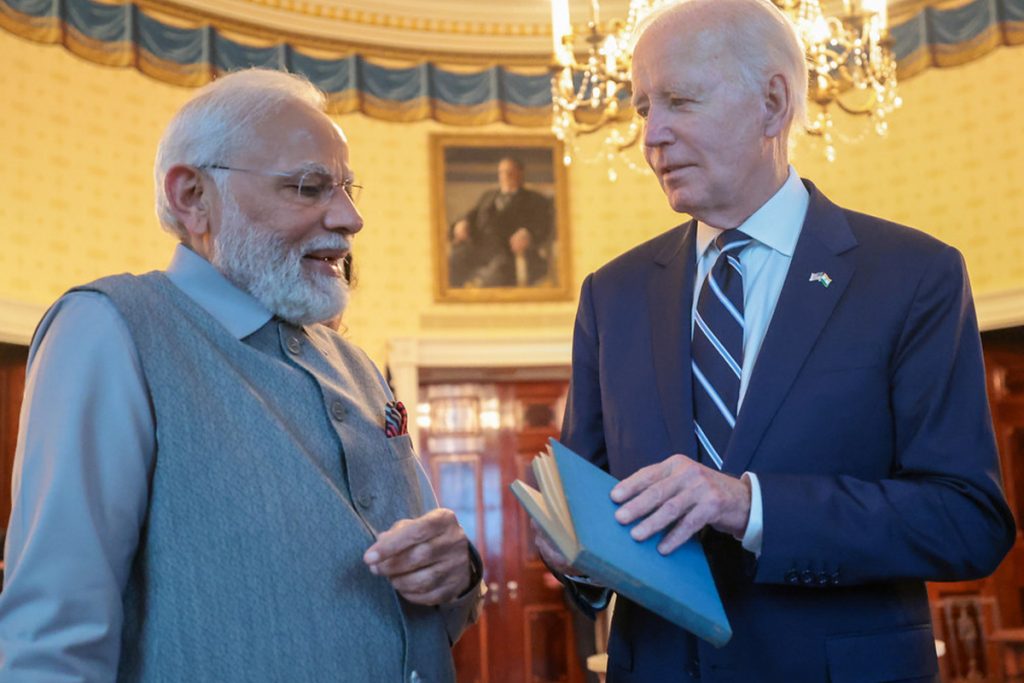Stating that resolving differences would require Canadian diplomats on the ground, the US has expressed concern and urged India not to insist upon their reduction.
Canada evacuated its 41 diplomats and 42 accompanying dependents from India after New Delhi “threatened” to strip them of their diplomatic immunity following a diplomatic row over the killing of pro-Khalistani hardliner Hardeep Singh Nijjar.
“We are concerned by the departure of Canadian diplomats from India, in response to the Indian government’s demand of Canada to significantly reduce its diplomatic presence in India,” State Department spokesperson Matthew Miller said on Friday.
“Resolving differences requires diplomats on the ground. We have urged the Indian government not to insist upon a reduction in Canada’s diplomatic presence and to cooperate in the ongoing Canadian investigation,” Miller said.
Only 21 Canadian diplomats would be stationed in India from now onwards, Canadian Foreign Minister Melanie Joly announced in a press briefing on Thursday. ”
We expect India to uphold its obligations under the 1961 Vienna Convention on Diplomatic Relations, including with respect to privileges and immunities enjoyed by accredited members of Canada’s diplomatic mission,” Miller said in a State Department release.
Joly accused India of unilaterally revoking diplomatic privileges and immunities by going against international law and asserted that New Delhi’s “unreasonable” move is a clear violation of the Vienna Convention on Diplomatic Relations.
In response, India’s Ministry of External Affairs (MEA) said on Friday that it rejects any attempt to portray the implementation of diplomatic parity as a violation of international norms.
The Ministry said that India’s actions in implementing parity of diplomats are fully consistent with Article 11.1 of the Vienna Convention on Diplomatic relations.
The Article states: “In the absence of specific agreement as to the size of the mission, the receiving State may require that the size of a mission be kept within limits considered by it to be reasonable and normal, having regard to circumstances and conditions in the receiving State and to the needs of the particular mission.”
The Ministry statement further said that the higher number of Canadian diplomats In India and their continued interference in internal affairs “warrant a parity in mutual diplomatic presence in New Delhi and Ottawa”.
The fresh development came after Prime Minister Justin Trudeau in mid-September accused Indian government agents of being behind the assassination of Nijjar on Canadian soil.
The claims were dismissed by India as “absurd” and led to tit-for-tat expulsion of diplomats and travel advisories.
After levelling allegations, Trudeau said that it was “extremely important” for his country and its allies to continue engaging “constructively and seriously” with India given its growing importance on the world stage.
